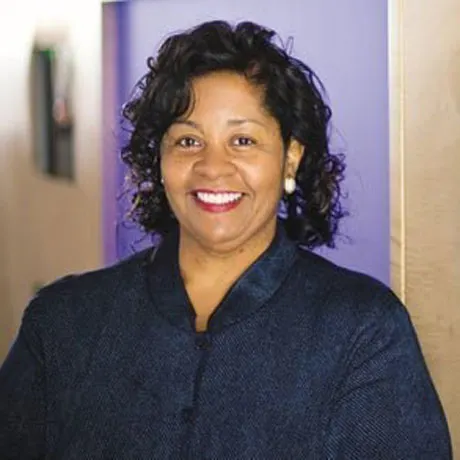Charter School Co-founder With ADHD and Dyslexia Creates the School He Always Wanted
As a child, Eric Tucker struggled in school with undiagnosed learning and thinking differences. Now he’s used his experiences to design Brooklyn Laboratory Charter School (LAB). It’s a free public middle school in Brooklyn, New York, that emphasizes .
The school is just a year old. But its approach is having a big impact on its 249 students, about a third of whom have learning and thinking differences. In an email to parents this summer, Tucker said they’d experienced “an average of 3.2 years of growth in reading and 2.1 years of growth in math in the 2014–15 school year.” (They measured this progress with the Northwest Evaluation Association MAP assessments.)
Tucker is a founder and executive director of the school. He and co-founder Erin Mote designed it in a way to tailor instruction for each student.
“We designed our model to deeply personalize the learning experience,” says Mote. “We are meeting [the students] where they are in order to unlock their full potential.” That’s just what Tucker says he didn’t get in school.
Tucker describes himself as a complex learner who had trouble with school. It wasn’t until his first couple of weeks at Brown University that his “profound learning and thinking differences” were identified. He found out that he had multiple learning challenges. They included , , and language acquisition delays.
Because he wasn’t diagnosed until college, Tucker never received special education services that could have helped him. But he does say that learning with all the other students was helpful in some ways.
As a result, all students get individualized instruction at Brooklyn LAB. They get one-on-one tutoring, small group instruction and help learning to use technology. That goes for kids who have learning and thinking differences—and those who don’t.
“That way, there’s no stigma,” Tucker says. “We are committed to providing the for our scholars. We are designing a learning experience that all students can fully participate in.”
Brooklyn LAB’s goal, Tucker says, is to make sure all students can learn and get ready for college. In addition to its emphasis on meeting each student’s needs, the school takes other steps to make this happen:
Students are always referred to as “scholars.” The word communicates their worth and positions them as lifelong learners, Mote says. About 9 out of 10 students at Brooklyn LAB qualify for federal free lunch programs. “The word ‘scholar’ speaks to what we believe is possible for them,” Mote says. “Many of them weren’t used to the language of possibility.”
A former debater, Tucker wants students to learn self-advocacy skills. The school makes it a priority to give students the tools they need to speak up for themselves.
The school works to help kids develop good executive functioning and self-management skills. That helps them stay on task and develop the organizational skills they’ll need in college.
Students learn to build on their strengths. They’re encouraged to pursue topics they’re passionate about. There’s time every day for hands-on learning in robotics, coding, video game design and even public speaking.
The school uses many ways to evaluate kids’ progress. Tucker says students get to “show what they know” in multiple ways when it comes to assessments and testing.
It wasn’t easy to get Brooklyn LAB up and running. Mote, Tucker and others knocked on more than 22,000 doors in New York City’s housing projects. They worked with special education coordinators and community organizations. They held open houses. And they recruited “an extraordinary staff and team of teachers who are able to move the needle academically for our scholars,” Mote says.
It took a lot of effort. But now this pioneering school is open for its second year. And its founders are hoping that the impact it has will make all the hard work worthwhile.
Get tips on how to tell if a charter school is the right fit for your child.
Any opinions, views, information and other content contained in blogs on Understood.org are the sole responsibility of the writer of the blog, and do not necessarily reflect the views, values, opinions or beliefs of, and are not endorsed by, Understood.
